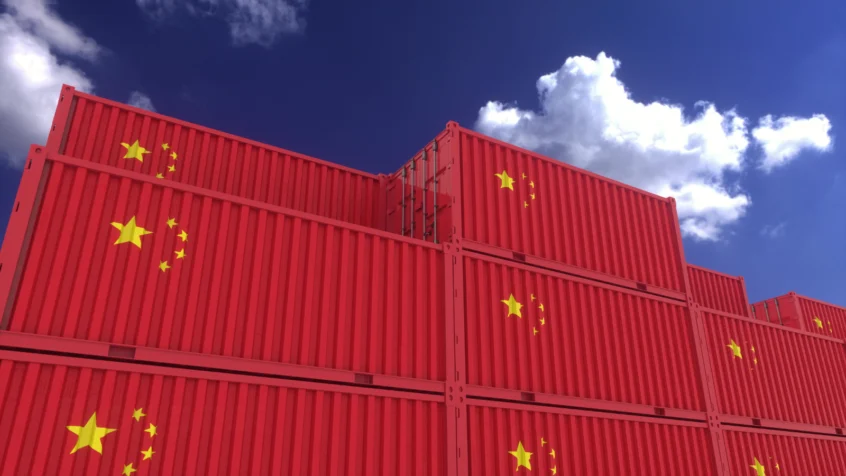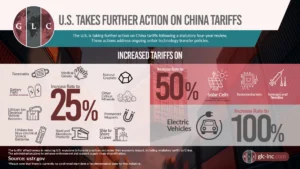In a decisive move, U.S. Trade Representative Katherine Tai announced further actions on China tariffs following a thorough four-year statutory review. This review assessed the effectiveness of tariffs imposed under Section 301 of the Trade Act of 1974, aimed at countering unfair trade practices by China, particularly in the realm of technology transfer and intellectual property.
Key Outcomes of the Review:
- Effectiveness of Tariffs:
- The tariffs have successfully reduced U.S. exposure to China’s harmful trade practices.
- They have provided leverage in negotiating with China to address systemic issues.
- Economic Impact:
- Despite their effectiveness, the tariffs have had notable economic impacts, including higher costs for U.S. consumers and businesses.
- China’s retaliatory tariffs have further strained economic relations, impacting various sectors.
New Tariff Actions:
The Biden administration is set to adjust tariff rates on several key imports from China, reflecting a strategic response to ongoing trade challenges. Here are the significant changes:
- Electric Vehicles: Tariffs will increase to 100% in 2024.
- Semiconductors: Tariffs will rise to 50% in 2025.
- Medical Gloves, Lithium-ion Batteries, and Other Critical Minerals: Tariffs will increase to 25% between 2024 and 2026.
- Solar Cells and Syringes: These will see a 50% tariff increase in 2024.
Strategic Focus and Future Plans:
- Enhanced Enforcement:
- The U.S. plans to bolster enforcement mechanisms to ensure compliance and mitigate circumvention of tariffs.
- This includes increased monitoring and stricter penalties for violations.
- Supply Chain Diversification:
- The administration aims to reduce reliance on Chinese imports by promoting alternative supply chains.
- This initiative seeks to enhance economic resilience and protect critical industries from geopolitical risks.
While the tariffs have proven effective in addressing unfair trade practices, their economic impact necessitates a balanced approach. By enhancing enforcement and supporting supply chain diversification, the U.S. aims to protect its economic interests while fostering a fairer global trade environment.
Guidance from Our Brokerage Team:
Navigating these new tariff regulations can be complex. Our brokerage team at GLC Inc. is ready to guide you through this process, ensuring your shipments comply effortlessly. Our comprehensive customs brokerage services are designed to minimize disruptions and optimize your supply chain operations.


